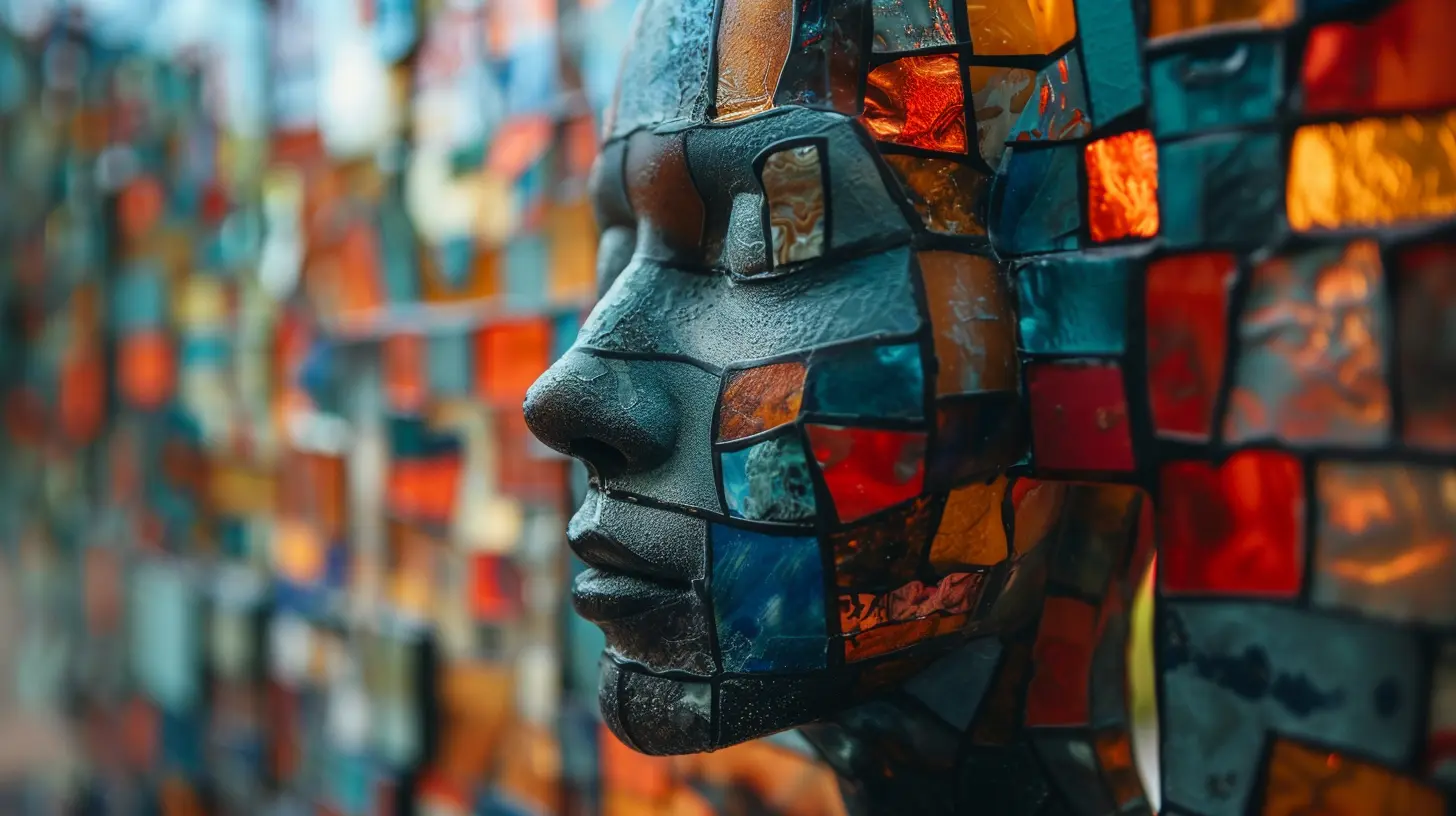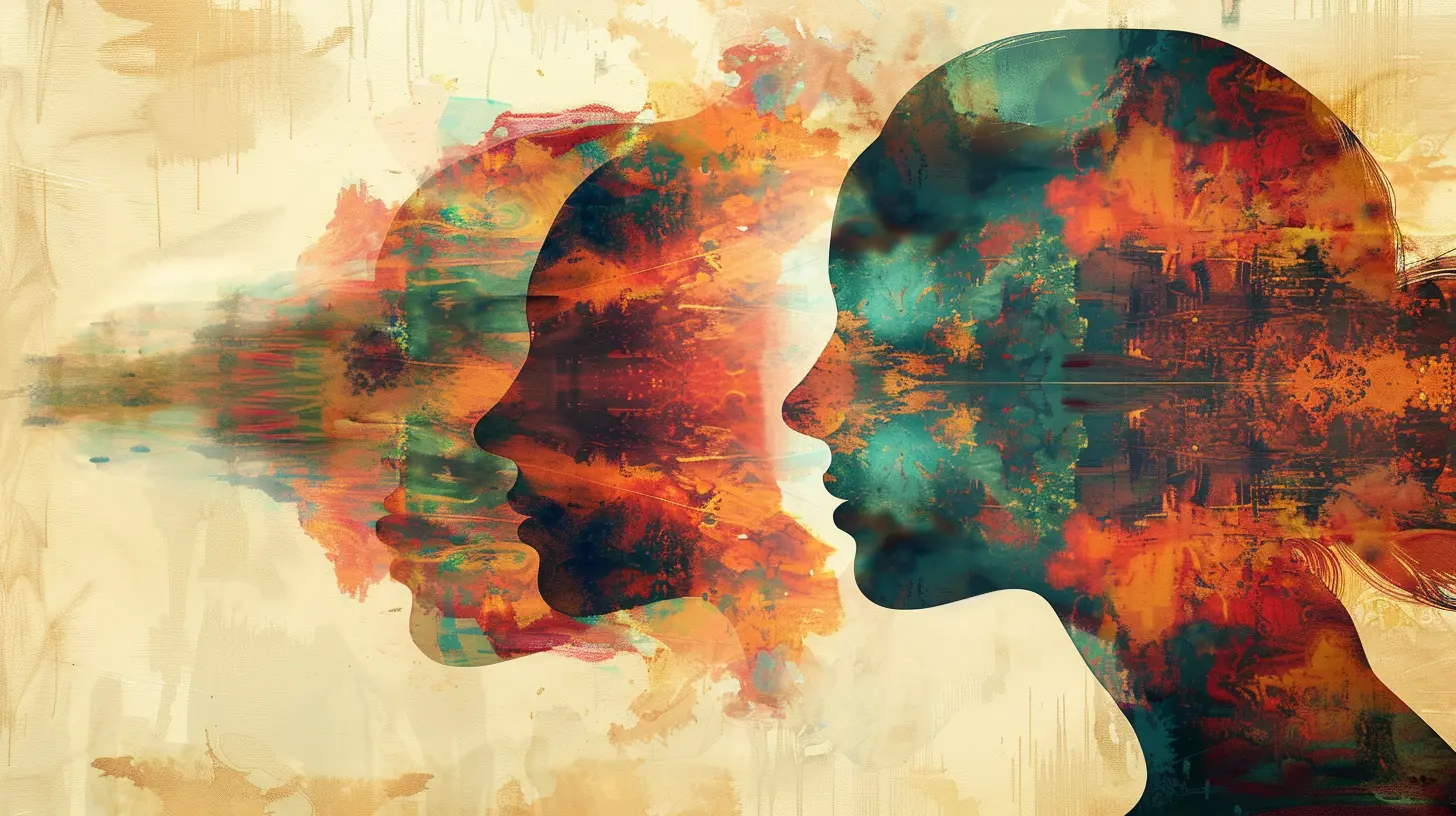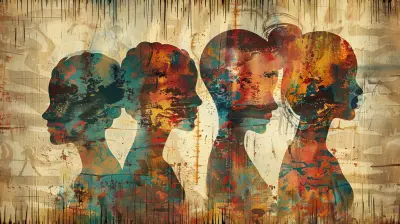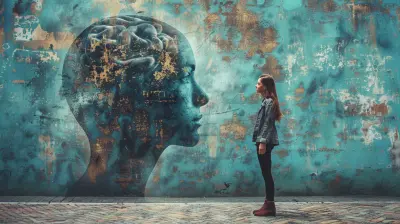Exploring the Intersection of Culture and Psychotherapy
3 January 2025
When we think about psychotherapy, we often imagine a one-size-fits-all approach—like a universal key that can unlock any door. But just like people vary in their personalities, experiences, and backgrounds, so too do their responses to therapy. And guess what? Culture plays a massive role in shaping how therapy is perceived, experienced, and ultimately, whether it works.
In this article, we're going to take a deep dive into the crossroads of culture and psychotherapy. We’ll explore how cultural factors influence both therapists and clients, the challenges this presents, and why understanding these nuances is essential for effective treatment. Buckle up because this journey might just change the way you think about therapy!
What Do We Mean by "Culture"?
Before we dive into how culture affects psychotherapy, let’s first get on the same page about what "culture" actually means. Culture goes beyond just race or ethnicity. It encompasses a whole range of factors, including:- Religion
- Language
- Traditions
- Values
- Social norms
- Historical context
All of these shape how individuals see the world, themselves, and even their mental health. Culture isn't just the backdrop; it's the lens through which we interpret everything—including therapy.
Why Culture Matters in Psychotherapy
You might be thinking, "Therapy is just talking, right? Why does culture matter?" Well, it's not that simple. Just like how you wouldn’t wear winter clothes in the middle of summer, you can’t expect therapy to work if it doesn’t fit the client’s cultural context.Cultural Sensitivity in Therapy
Imagine going to a therapist who doesn't understand your background. You open up about your struggles, and they respond with advice that feels foreign or even offensive. That’s like being handed a map in a language you can’t read. Cultural sensitivity means that a therapist is aware of and respects the client’s cultural background. This is crucial because:- It builds trust: Clients are more likely to open up if they feel understood.
- It avoids misunderstandings: Misinterpretation of cultural norms can lead to ineffective or even harmful treatment.
- It tailors treatment: Therapists can adapt their methods to better suit the client’s worldview, making therapy more effective.
But it’s not just about avoiding mistakes. Cultural sensitivity can also enhance therapy by unlocking new avenues for healing that might not be obvious in a more “standard” approach.
The Therapist's Role: Cultural Competence
So, how does a therapist become more culturally aware? Enter the concept of cultural competence. This isn’t just about having knowledge of different cultures—it’s about actively incorporating that understanding into practice. A culturally competent therapist will:1. Ask questions: Instead of assuming, they’ll inquire about the client’s beliefs, values, and worldview.
2. Avoid stereotypes: They recognize that culture is complex and that no two individuals from the same cultural background are identical.
3. Stay open-minded: A good therapist is always learning and growing. They’re aware that cultural competence is an ongoing process, not a one-time achievement.
But it’s not just on the therapist. Clients also carry their cultural baggage into the room, sometimes without even realizing it.
Cultural Barriers in Psychotherapy
Let’s not sugarcoat it—there are some real challenges when it comes to the intersection of culture and therapy. These hurdles can make it difficult for clients from certain cultural backgrounds to access or benefit from psychotherapy.Stigma and Mental Health
In some cultures, mental health is still a taboo topic. For instance, in many collectivist societies, where family and community take precedence over the individual, seeking therapy can be seen as shameful or a sign of weakness. If you're from one of these backgrounds, therapy might feel like airing your dirty laundry in public—something you’d rather avoid.Language Barriers
Therapy is all about communication, right? So, what happens if the client and therapist don’t speak the same language? Even if they do, subtle nuances can get lost in translation. For example, certain emotions or experiences might not have direct equivalents in other languages, making it hard to express exactly how one feels.Mistrust of the System
For some communities—especially those that have faced historical trauma or systemic discrimination—there’s a deep-rooted mistrust of healthcare providers, including therapists. This can make people reluctant to seek help, even when they need it.Bridging the Gap: Culturally Adapted Therapy
So, how do we bridge these cultural gaps? One promising approach is culturally adapted therapy. This involves tweaking traditional therapy models to better fit the cultural context of the client. Think of it like customizing a suit; the general shape is the same, but it’s tailored to fit the individual perfectly.Incorporating Cultural Practices
In some cases, therapists may integrate elements of a client’s cultural or spiritual practices into the treatment. For example, mindfulness-based practices like meditation, which have roots in Eastern philosophy, are now widely used in Western psychotherapy. By incorporating culturally relevant practices, therapy can feel more authentic and relatable to the client.Using Metaphors and Language
A therapist might also use metaphors or stories that resonate with the client’s cultural background. If you’re from a farming community, for instance, a therapist could use agricultural metaphors to explain psychological concepts. This kind of adaptation makes therapy not only more accessible but also more meaningful.Case Studies: Culture Meets Psychotherapy
To really understand the impact of culture on therapy, let’s look at a couple of real-world examples.Example 1: Therapy in an Indigenous Community
In many Indigenous communities, mental health is viewed holistically, encompassing the mind, body, spirit, and environment. Traditional psychotherapy, which often focuses on the individual, might not address the communal aspects of healing that are important in these cultures.In one case study, therapists working with Indigenous clients adapted their approach to include group therapy sessions that involved community leaders and elders. They also included spiritual practices like smudging and drumming, which helped clients feel more connected to their culture and, as a result, more open to the therapeutic process.
Example 2: Therapy with First-Generation Immigrants
First-generation immigrants often face unique challenges, including the stress of adapting to a new culture while maintaining a connection to their heritage. In one case, a therapist working with a first-generation immigrant client from a collectivist culture focused on family dynamics as a central theme in therapy. Instead of encouraging individual autonomy (which might be more common in Western therapy), the therapist helped the client navigate family relationships and obligations, making the therapy more culturally relevant.The Future: A More Inclusive Approach to Therapy
As our world becomes more interconnected, therapists will increasingly find themselves working with clients from diverse cultural backgrounds. This is a good thing! It pushes the field of psychotherapy to grow and adapt, becoming more inclusive and effective in the process.Training and Education
To meet this challenge, more emphasis is being placed on training therapists in cultural competence. Many psychology programs now include courses on multicultural counseling, and therapists are encouraged to seek out continuing education opportunities that focus on the intersection of culture and therapy.Expanding Access
We also need to focus on expanding access to culturally competent therapy. This means not only training more therapists in cultural sensitivity but also making therapy more affordable and accessible to underserved communities. Teletherapy, for instance, has opened up new possibilities for reaching clients who might otherwise have limited access to mental health care.Conclusion
The intersection of culture and psychotherapy is a complex but fascinating space. Culture shapes how clients view therapy, how they experience mental health, and even how they heal. For therapy to be effective, it has to take these cultural nuances into account.It’s clear that one-size-fits-all therapy just doesn’t cut it. By embracing cultural diversity and adapting therapeutic practices, we can create more inclusive, effective, and compassionate care for everyone. After all, therapy is about healing—and there’s no one right way to heal.
all images in this post were generated using AI tools
Category:
PsychotherapyAuthor:

Matilda Whitley
Discussion
rate this article
13 comments
Diana McKenzie
Culture shapes our minds and hearts—understanding this intersection in psychotherapy is crucial. As we unravel diverse narratives, we empower healing and foster authentic connections, proving that mental health isn't just personal, but profoundly collective and culturally rich.
February 5, 2025 at 4:01 AM

Matilda Whitley
Thank you for your insightful comment! I completely agree that recognizing the cultural dimensions of psychotherapy enhances healing and strengthens our connections, making mental health a shared journey enriched by diverse narratives.
Milena McKenzie
Can therapy have a cultural dance-off? Let's find out!
January 31, 2025 at 5:27 AM

Matilda Whitley
Absolutely! A cultural dance-off could be a unique and engaging way to explore and express emotional experiences, fostering connection and understanding in therapy.
Drake Hernandez
This article brilliantly highlights how cultural contexts shape therapeutic practices and client experiences. Emphasizing cultural competence in psychotherapy not only enhances treatment effectiveness but also fosters deeper understanding and connection between therapist and client.
January 28, 2025 at 4:12 PM

Matilda Whitley
Thank you for your insightful comment! I'm glad you found the article highlights the importance of cultural competence in enhancing therapeutic relationships and treatment effectiveness.
Beatrice McGuffin
Cultural sensitivity is crucial; integrating diverse perspectives enhances therapeutic outcomes and fosters deeper connections.
January 25, 2025 at 5:35 PM

Matilda Whitley
Thank you for your insightful comment! I completely agree that cultural sensitivity significantly enriches therapy by promoting better understanding and connection between therapist and client.
Weston McNair
Culture shock: therapy's secret ingredient!
January 19, 2025 at 5:31 PM

Matilda Whitley
Absolutely! Culture shock can reveal underlying beliefs and practices, making it a powerful tool for therapeutic exploration and growth.
Taylor McDowney
This article sparks my curiosity about how cultural backgrounds influence therapeutic approaches. How do therapists tailor their methods to respect and integrate diverse cultural perspectives in the healing process?
January 17, 2025 at 5:48 AM

Matilda Whitley
Thank you for your insightful comment! Therapists often tailor their methods by incorporating culturally relevant practices, actively listening to clients' backgrounds, and using culturally sensitive frameworks to ensure respect and integration of diverse perspectives in the healing process.
Zevran Lee
This article provides valuable insights into how cultural contexts shape therapeutic practices and client experiences. Understanding these dynamics is essential for effective psychotherapy, fostering better connections between therapists and clients across diverse backgrounds. Great read!
January 10, 2025 at 5:56 AM

Matilda Whitley
Thank you for your thoughtful comment! I'm glad you found the article insightful and relevant to enhancing therapeutic connections across cultures.
Lindsey Snow
This article highlights the crucial role culture plays in therapy, emphasizing the need for culturally informed approaches in psychotherapy for effective outcomes.
January 7, 2025 at 3:56 PM

Matilda Whitley
Thank you for your insightful comment! I completely agree—culturally informed approaches are essential for effective therapeutic outcomes.
Vienna Snow
Ah, the delicate dance of culture and therapy! It's like trying to combine sushi and spaghetti—delicious if done right, but let’s avoid the wasabi in the marinara. Who knew healing could be this delectable and confusing?!" 🍣🍝
January 6, 2025 at 5:30 PM

Matilda Whitley
Absolutely! It’s all about finding the right balance and blending elements thoughtfully. Healing can indeed be both delicious and complex!
Luma Williams
This article powerfully highlights the crucial role of culture in shaping therapeutic practices. Understanding cultural contexts not only enhances the effectiveness of psychotherapy but also fosters deeper connections between therapist and client. It's a vital conversation for creating inclusive mental health support in our diverse society.
January 6, 2025 at 5:57 AM

Matilda Whitley
Thank you for your insightful comment! I completely agree that understanding cultural contexts is essential for effective therapy and fostering meaningful connections. Your perspective on inclusivity is invaluable to this ongoing conversation.
Layla Brown
Culture shapes minds, so let’s stop ignoring it in therapy—it's time to get real!
January 5, 2025 at 4:42 PM

Matilda Whitley
Absolutely! Acknowledging culture in therapy enriches understanding and fosters more effective healing. Let's embrace this vital aspect.
Troy Good
Thank you for this insightful article! It’s crucial to consider cultural factors in psychotherapy, as they profoundly influence individual experiences and therapeutic outcomes. I look forward to more discussions on this vital topic!
January 4, 2025 at 5:36 PM

Matilda Whitley
Thank you for your thoughtful comment! I completely agree that cultural factors are essential in psychotherapy. I appreciate your interest and look forward to more discussions!
Aria McLaury
Culture and therapy—like peanut butter and pickles, a surprising combo! Just as each bite brings an unexpected crunch, blending diverse cultural perspectives in psychotherapy adds a flavorful depth to healing. Who knew that exploring our brains could be as vibrant and quirky as a patchwork quilt of experiences?
January 3, 2025 at 4:01 PM

Matilda Whitley
Thank you for your creative analogy! I love the idea of blending diverse cultural perspectives in therapy, as it truly enriches the healing journey in unique and meaningful ways.
MORE POSTS

How Trauma-Informed Counseling Can Aid in Healing

Why Emotional Resilience is Essential for Well-Being

Phobias vs. Anxiety: What’s the Difference?

Cultivating Self-Compassion in a Judgmental World

The Psychology of Hope: How to Stay Optimistic in Tough Times

The Psychology of Decision Avoidance: Procrastination and Fear

Unpacking the Role of Family Dynamics in Psychosomatic Disorders

Is Cognitive Behavioral Therapy Effective for PTSD?

How Leaders Can Foster a Growth Mindset in Their Teams